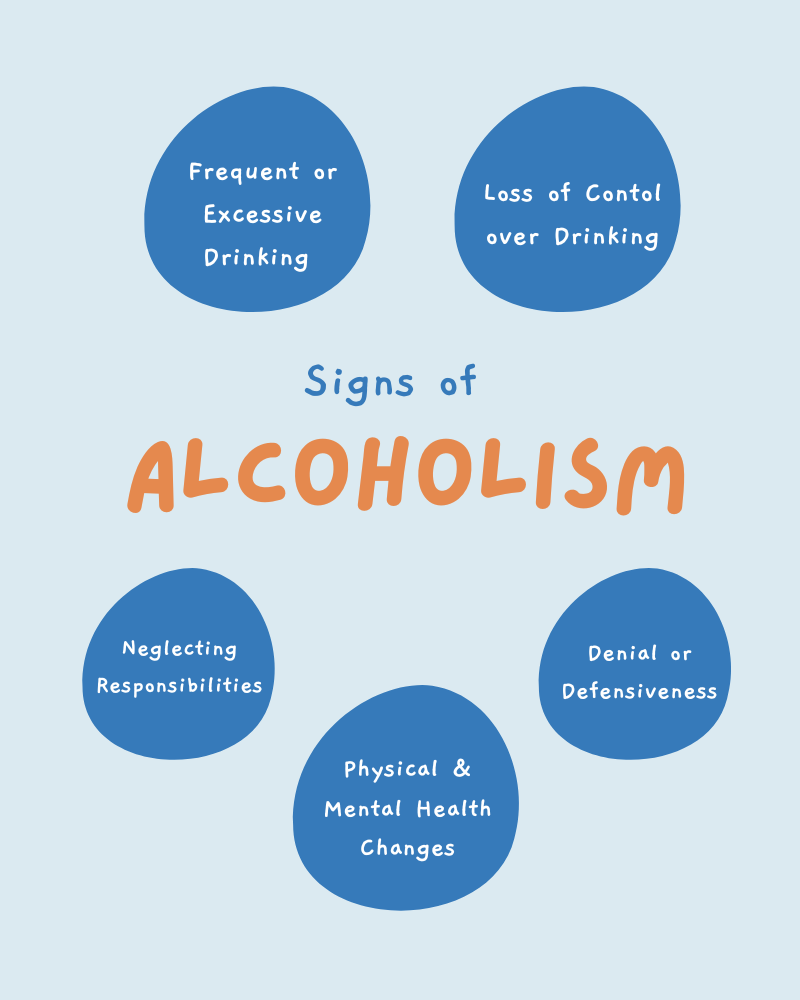If your mother is struggling with alcoholism, you may feel powerless, frustrated, or unsure of how to help. Alcohol addiction is a disease that affects both the individual and their loved ones, often leading to emotional distress, strained relationships, and unhealthy family dynamics. While you cannot force your mother to stop drinking, understanding alcoholism and setting healthy boundaries can help you navigate this difficult situation.
It’s essential to educate yourself about addiction, encourage treatment when possible, and avoid enabling behaviors that may unintentionally support her drinking. Seeking support for yourself—whether through therapy, family support groups like Al-Anon, or talking to trusted friends—can also be crucial in maintaining your well-being.
At Align Recovery Centers, we offer professional treatment options for alcohol addiction, including medical detox, residential rehab, and therapy programs that address both the physical and emotional aspects of recovery. Understanding alcohol addiction statistics can highlight the urgency of seeking help and the effectiveness of professional treatment. If your mother is ready to seek help, we provide compassionate, evidence-based care. Reach out today to learn more about how we can support her journey to sobriety.
Recognizing the Signs of Alcoholism
Alcoholism is a chronic and progressive disease that can affect a person’s behavior, physical health, and relationships. If you are concerned about your mother’s drinking, understanding the common signs of alcohol addiction can help you assess the situation and determine the best course of action.
Frequent or Excessive Drinking
One of the most noticeable signs of alcoholism is consuming alcohol regularly, often in large amounts or at inappropriate times. This may include drinking daily, binge drinking, or relying on alcohol to cope with stress or emotions. If your mother often drinks more than intended or prioritizes alcohol over other responsibilities, it may indicate a deeper issue.
Loss of Control Over Drinking
Alcohol addiction often involves an inability to regulate drinking habits. Your mother may express a desire to cut back on alcohol but struggle to follow through. Failed attempts to stop drinking, unsuccessful moderation efforts, or continued alcohol use despite negative consequences are strong indicators of dependency. In some cases, she may appear to maintain daily responsibilities while still relying on alcohol, a pattern commonly associated with a high-functioning alcoholic. While she may not fit the stereotype of severe alcoholism, the inability to control drinking is a sign that professional intervention may be necessary.
Neglecting Responsibilities and Relationships
As alcoholism progresses, it can interfere with daily life. Suppose your mother is missing work, failing to keep up with household responsibilities, or distancing herself from loved ones. In that case, alcohol may be taking priority over other important aspects of her life. Relationship conflicts and social withdrawal are common as drinking becomes more central to her routine.

Physical and Mental Health Changes
Alcohol affects both the body and mind. Physical symptoms such as frequent hangovers, blackouts, tremors, or withdrawal symptoms when not drinking can be warning signs of alcohol dependence. Mental health may also decline, leading to mood swings, irritability, anxiety, or depression. Long-term alcohol abuse can result in serious health complications, including liver damage, cognitive impairment, and cardiovascular issues.
Denial or Defensiveness
Many people struggling with alcoholism minimize or deny the severity of their drinking problem. If your mother reacts with defensiveness when confronted about her alcohol use or dismisses concerns raised by family members, she may not yet recognize the impact of her drinking. Denial is a common barrier to seeking treatment, making approaching the conversation with patience and support crucial.
Recognizing these signs can help you better understand your mother’s struggles with alcohol and take the necessary steps to encourage treatment while also maintaining your well-being. Seeking professional guidance can provide the tools and support needed to navigate this difficult situation.

How Alcoholism Affects Families
Alcoholism impacts not only the individual struggling with addiction but also their loved ones. When a parent has an alcohol use disorder, it can create emotional instability, disrupt family dynamics, and lead to long-term psychological effects. Understanding these challenges can help you recognize unhealthy patterns and take steps to protect your well-being.
Emotional Distress and Mental Health Struggles
Growing up or living with a parent who has an alcohol problem can lead to feelings of guilt, shame, fear, and anxiety. Many children and adult children of alcoholics feel responsible for their parent’s well-being or struggle with the unpredictability of their drinking. Over time, this stress can contribute to depression, low self-esteem, and difficulty regulating emotions.
Enabling and Unhealthy Family Roles
Family members often develop coping mechanisms to manage the situation, sometimes without realizing they are enabling the addiction. Enabling can take many forms, such as covering up for your mother’s drinking, making excuses for her behavior, or taking on responsibilities she neglects. While these actions may feel like a way to keep the family stable, they often allow the addiction to continue unchecked.
Codependency and Loss of Personal Boundaries
Many children of alcoholics develop codependent tendencies, where they prioritize their mother’s needs over their own. This can lead to unhealthy relationships, difficulty setting boundaries, and an overwhelming sense of responsibility for someone else’s behavior. Codependency can be emotionally draining and make it challenging to maintain a sense of independence.
Broken Trust and Relationship Struggles
Alcoholism often leads to dishonesty, broken promises, and unpredictable behavior. Over time, trust within the family erodes, creating resentment and emotional distance. Family members may struggle to rely on their alcoholic parent, which can affect their ability to form healthy relationships with others in the future.
The Importance of Seeking Support
Living with an alcoholic parent can be overwhelming, but you do not have to go through it alone. Seeking therapy, joining support groups like Al-Anon, or confiding in trusted friends can help you process your emotions and develop healthy coping strategies. Taking care of yourself is just as important as encouraging your mother to seek treatment. Prioritizing your own well-being allows you to provide support from a place of strength rather than exhaustion.
What You Can Do to Help
Supporting a loved one with alcoholism can be challenging, especially when it’s a parent. While you cannot force your mother to stop drinking, you can take meaningful steps to encourage her recovery while protecting your own mental and emotional well-being.
Educate Yourself About Alcoholism
Understanding that alcoholism is a disease, not simply a lack of willpower, can shift your perspective and help you approach the situation with compassion. Addiction affects brain chemistry, decision-making, and impulse control, making it difficult for individuals to stop drinking without professional help. By learning about alcohol use disorder (AUD) and its effects, you can better navigate conversations with your mother and find productive ways to support her.
Establish Healthy Boundaries
Setting clear boundaries is essential for maintaining your well-being. This may mean refusing to cover for your mother’s mistakes, not engaging in arguments when she is intoxicated, or stepping back from situations that put you in emotional distress. Boundaries help you protect yourself from the adverse effects of her drinking while also discouraging enabling behaviors.
Encourage Professional Treatment
If your mother is open to help, guiding her toward professional treatment can be a critical step. Depending on her level of alcohol dependence, she may benefit from medical detox, residential rehab, outpatient treatment, or therapy. While she must ultimately decide to seek help, expressing your concern and providing information about treatment options can make a difference.
Seek Support for Yourself
Caring for a parent with alcoholism can be emotionally exhausting. Seeking support through organizations like Al-Anon, individual therapy, or support groups for families of alcoholics can provide guidance and reassurance. Talking to others who have experienced similar challenges can help you process your emotions, set boundaries, and develop healthier coping strategies.
Avoid Enabling Behaviors
Enabling occurs when actions, often made with good intentions, allow an addiction to continue. Covering up for your mother’s behavior, giving her money, or rescuing her from the consequences of her drinking may unintentionally reinforce her alcohol use. Instead, allow her to experience the natural consequences of her actions while maintaining your support for her recovery efforts.
Show Support Without Enabling
While you cannot control your mother’s choices, you can still express love and encouragement. Let her know you care about her well-being and will support her in seeking treatment. However, balancing support with firm boundaries is essential to ensure that your health and stability are not compromised.
Helping a loved one with alcoholism is a difficult journey, but you do not have to face it alone. Prioritizing your well-being while encouraging recovery can help create a more stable and supportive environment for both you and your mother.
Treatment Options for Alcoholism
Alcoholism is a complex disease that requires professional treatment to achieve long-term recovery. While quitting alcohol without support can be difficult—especially for individuals experiencing withdrawal symptoms or co-occurring mental health disorders—structured treatment programs can provide the medical care, therapy, and guidance necessary for lasting sobriety.
At Align Recovery Centers, we offer comprehensive addiction treatment tailored to each individual’s needs. If your mother is ready to seek help, our programs provide a safe and supportive environment to help her through every stage of recovery.

Medication-Assisted Detox
Detox is the first step in overcoming alcohol dependence. When a person stops drinking, withdrawal symptoms can range from mild discomfort to severe, life-threatening complications such as delirium tremens (DTs) or seizures. Our medically supervised detox program ensures that your mother can withdraw from alcohol safely, with 24/7 medical monitoring, symptom management, and compassionate care. The goal of detox is to stabilize the body while minimizing discomfort, preparing individuals for the next phase of treatment.
Residential Treatment for Alcoholism
After detox, a structured treatment program is essential to address the underlying causes of addiction and develop healthy coping skills. Our residential treatment program provides an immersive healing environment where individuals receive evidence-based therapies, holistic approaches, and continuous support from experienced professionals. Therapy sessions focus on addressing trauma, mental health concerns, and behavioral patterns associated with alcohol use, helping individuals build a strong foundation for long-term recovery.
Alcohol Addiction Treatment at Align Recovery Centers
If your mother is struggling with alcoholism, know that help is available. Alcohol use disorder (AUD) is a chronic but treatable condition that affects both physical and mental health. Without intervention, prolonged alcohol misuse can lead to severe consequences, including liver disease, cardiovascular problems, cognitive decline, and an increased risk of mental health disorders such as depression and anxiety. Beyond the physical impact, alcoholism often strains relationships, disrupts family dynamics, and creates emotional distress for both the individual and their loved ones. However, with the right treatment, support system, and commitment to recovery, long-term sobriety is achievable. Seeking professional care can provide the structure, medical oversight, and therapeutic resources necessary to help individuals regain control of their lives.

Dana, with over 20 years in addiction therapy and counseling, is the Executive Director at Align Recovery Centers. Holding a B.S. in Human Services and an M.A. in Counseling & Psychology, she’s both an Associate Marriage and Family Therapist and a Substance Use Disorder Certified Counselor. Specializing in DBT and CBT, Dana effectively manages both residential and outpatient programs. Her interests include gardening, cooking, and delving into psychological research in her spare time.
